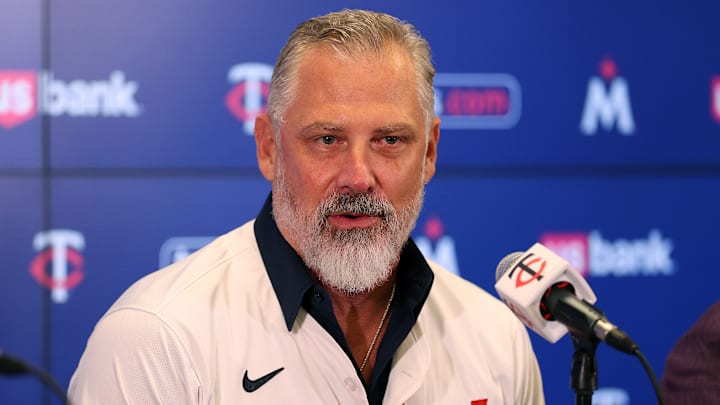Derek Shelton kept it classy when talking about his former employer Tuesday at his formal introduction as manager of the Minnesota Twins.
He made multiple references to his tenure as manager of the Pittsburgh Pirates from 2019-25, at one point answering the question of whether he knew why Pittsburgh had made the move to fire him in May.
“It was probably the right time,” Shelton said. “It was probably the right direction. … Completely understand that. Completely respect that. Still have a lot of really close relationships there. But at times, things in certain places run their course. I was very fortunate for my time in Pittsburgh and the things I learned. But it was a situation where they probably needed a different leader.”
Few will disagree with that assessment. But now, it stands to reason that Shelton’s tenure in Minnesota – whether it flourishes or flops – will serve as a mirror held up to the Pirates and the Ben Cherington era.
Shelton's comments about how the Pirates "probably needed a different leader” weren’t bitter; they were quietly revealing. They hint that he knows his firing wasn’t personal; it was philosophical. And what happens next in Minnesota will test whether that philosophy was justified.
Derek Shelton is officially introduced as @Twins' manager! 👏 pic.twitter.com/qfz2tRXDjK
— MLB Network (@MLBNetwork) November 4, 2025
Pirates fans will be keeping a close eye on Derek Shelton in Minnesota
If Shelton leads the Twins to success – with clearer roles, consistent offense and a balanced roster – it will raise the uncomfortable question in Pittsburgh: Was he ever really the problem to begin with?
The Pirates under Cherington often handed Shelton incomplete rosters that were heavy on young pitching, thin on offense and trapped in perpetual “development” mode. If Shelton thrives in Minnesota’s more structured, talent-rich environment, it will reinforce the idea that Pittsburgh’s dysfunction stemmed from front-office construction and ownership limits, not from the man in the dugout.
If the Twins fall flat under Shelton, Pittsburgh’s front office will likely feel vindicated – proof, they’ll say, that he wasn’t the right fit to lead a contender. But even that validation comes with a catch: Shelton’s firing in Pittsburgh wasn’t about results alone; it was about needing a new voice after years of stagnation. If he fails elsewhere, it may confirm that he wasn’t the transformative type of leader the Pirates needed – but it won’t automatically prove that Pittsburgh is on the right track.
The Pirates’ new manager, Don Kelly, still has to turn the same thin payroll and volatile roster into progress. If he doesn’t, Shelton’s “they probably needed a different leader” will ring hollow.
Shelton’s “completely understand” line about his firing also read like someone who’s seen the limits of what’s possible under Bob Nutting’s ownership. If he walks into Minnesota and immediately finds organizational clarity, better communication and alignment from top to bottom, it’ll highlight how fractured Pittsburgh’s internal culture was.
Symbolically, Shelton becomes the control group. If he thrives in a place where winning is prioritized and fails where development is an excuse, that contrast will tell fans everything they need to know about the Pirates’ problems.
Shelton’s next chapter isn’t just about redemption; it’s a referendum. If he wins in Minnesota, it shows that Pittsburgh’s failure wasn’t about the man leading the team, but about the machine behind him. If he loses, it shows that even a sympathetic figure like Shelton couldn’t transcend limitations – and that the Pirates may have been right to move on.
Either way, his journey becomes the most honest external test of whether the Pirates’ “rebuild” ever had the right foundation.
